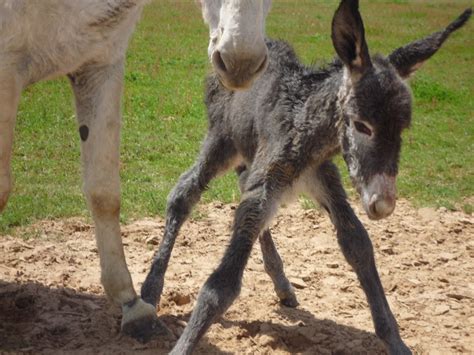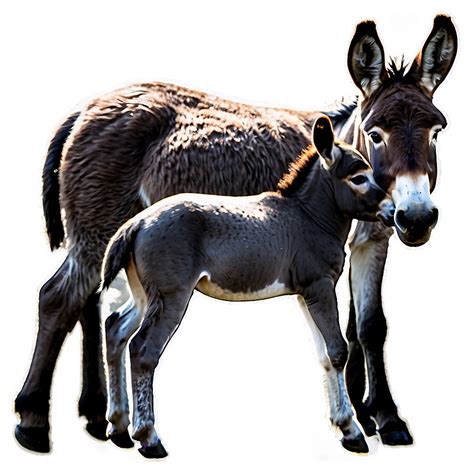
A fluffy Chow Chow puppy named Beibei is capturing hearts online with her infectious giggles, earning her the title of “most ticklish puppy” according to her owner, Alice, on TikTok. Videos of Beibei reacting to tickles have amassed millions of views, showcasing her adorable personality and eliciting joyful responses from viewers worldwide.
Beibei, a cream-colored Chow Chow puppy, has become an internet sensation due to her unusually strong reaction to being tickled. Her owner, Alice, regularly posts videos of Beibei’s ticklish reactions on TikTok, where they have garnered immense popularity. These videos typically feature Alice gently tickling Beibei, who responds with a series of delightful giggles and playful movements. The sound of Beibei’s laughter, coupled with her fluffy appearance, has proven to be irresistible to online audiences.
The appeal of Beibei’s videos lies in their ability to evoke positive emotions. Many viewers have commented on how Beibei’s giggles brighten their day and provide a welcome escape from the stresses of daily life. The videos have also sparked discussions about animal behavior and the emotional capacity of dogs, particularly Chow Chows, a breed often perceived as aloof.
Alice’s TikTok account has rapidly gained followers, transforming Beibei into a recognized internet personality. The comments sections of Beibei’s videos are filled with expressions of admiration and affection, with many users requesting more content featuring the giggling puppy. The popularity of Beibei’s videos highlights the power of social media to connect people through shared experiences of joy and cuteness.
Chow Chows, known for their distinctive lion-like mane and independent nature, are not typically associated with overt displays of affection or playfulness. However, Beibei’s behavior challenges these stereotypes and offers a fresh perspective on the breed. Her giggles suggest a capacity for joy and responsiveness that may surprise those unfamiliar with Chow Chows. This has led to a broader conversation about the individual personalities of dogs and the importance of understanding breed characteristics within the context of individual animal behavior.
Veterinarians and animal behaviorists suggest that Beibei’s reaction to tickling may be a combination of physical stimulation and social interaction. Tickling can stimulate nerve endings and trigger a reflexive response, while the act of being tickled by a trusted person can also be a form of bonding and play. The specific areas of the body that elicit the strongest reactions may vary from dog to dog, but common ticklish spots include the belly, neck, and paws.
The rise of Beibei’s popularity underscores the growing trend of pet-related content on social media. Platforms like TikTok, Instagram, and YouTube are filled with videos and images of animals engaging in various activities, from performing tricks to simply lounging around. This content provides entertainment, educates viewers about animal care, and fosters a sense of community among pet lovers.
The economic impact of pet-related content should not be overlooked. Influencer pets can generate substantial income through sponsorships, merchandise sales, and appearances. This burgeoning industry has created new opportunities for pet owners to monetize their animals’ popularity and has led to increased investment in pet-related products and services.
Beyond the entertainment value, Beibei’s story also highlights the importance of responsible pet ownership. Alice’s care for Beibei is evident in the puppy’s healthy appearance and playful demeanor. Her videos serve as a reminder of the joy and companionship that animals can bring to our lives, as well as the responsibilities that come with caring for a pet. This includes providing proper nutrition, exercise, veterinary care, and socialization.
The internet’s fascination with Beibei’s giggles also raises questions about the ethics of animal content creation. It is crucial to ensure that animals are not exploited for entertainment purposes and that their welfare is always prioritized. Content creators should be mindful of the potential for stress or discomfort that filming may cause and should avoid engaging in activities that could harm or endanger their pets. The key to ethical animal content creation is to focus on showcasing natural behaviors and interactions in a way that is respectful and compassionate.
Beibei’s viral fame has prompted many to consider getting a Chow Chow puppy. However, experts caution that potential owners should research the breed thoroughly before making a decision. Chow Chows require consistent training and socialization from a young age to prevent behavioral issues. They are also prone to certain health problems, such as hip dysplasia and eye conditions, which can be costly to treat.
Alice’s experience with Beibei demonstrates the potential for pets to enrich our lives and bring joy to others. Her videos serve as a testament to the power of animal companionship and the ability of social media to connect people through shared experiences of cuteness and laughter. As Beibei’s popularity continues to grow, she is likely to remain a beloved figure in the online community, spreading smiles and giggles to viewers around the world. The story of the “ticklish teddy” serves as a heartwarming reminder of the simple pleasures in life and the unique bond between humans and animals.
The impact of Beibei’s virality extends beyond mere entertainment. It sparks conversations about animal behavior, responsible pet ownership, and the ethical considerations of showcasing animals on social media. It underscores the power of a single, heartwarming image or video to capture global attention and evoke shared emotions. Beibei’s story is not just about a giggling puppy; it’s about the universal human connection to animals and the joy they bring into our lives.
The continuous stream of positive feedback and engagement that Beibei’s videos generate also reflects a broader societal need for uplifting content. In an era often dominated by negative news and social division, Beibei’s innocent laughter provides a much-needed dose of optimism and lightheartedness. This underscores the important role that animal-related content can play in promoting emotional well-being and fostering a sense of community.
As Beibei grows, her story will undoubtedly evolve, capturing new aspects of her personality and deepening the connection she has with her audience. Whether she continues to be known for her ticklishness or develops other endearing traits, her legacy as a source of joy and inspiration is likely to endure. Her tale serves as a reminder that even the smallest creatures can have a big impact on the world, and that sometimes, all it takes to make a difference is a giggle and a fluffy face.
The trend of animals becoming internet sensations highlights a shift in how we perceive and interact with them. No longer simply pets, they are increasingly viewed as companions, family members, and even celebrities. This change in perception has significant implications for animal welfare, as it leads to greater awareness of their needs and rights. It also influences consumer behavior, driving demand for higher-quality pet products and services.
The success of Beibei’s TikTok account also illustrates the changing landscape of media consumption. Traditional media outlets are increasingly competing with user-generated content for audience attention. Platforms like TikTok offer a direct and authentic connection between creators and viewers, bypassing the gatekeepers of traditional media and allowing for a more diverse range of voices and perspectives to be heard. This democratization of content creation has empowered individuals to share their stories and build communities around shared interests, such as a love for animals.
Moreover, Beibei’s story underscores the importance of visual storytelling in the digital age. Her videos are short, engaging, and easily shareable, making them perfectly suited for the fast-paced environment of social media. The ability to capture and convey emotions through visual media is a powerful tool for communication, and it is increasingly being used by brands, organizations, and individuals to connect with audiences on a deeper level.
The ethical considerations surrounding animal content creation extend beyond the immediate welfare of the animals involved. They also encompass broader issues such as responsible representation and the potential for perpetuating harmful stereotypes. It is important for content creators to be mindful of the messages they are conveying and to avoid promoting practices that could harm animals or mislead viewers.
The story of Beibei also highlights the power of social media to amplify positive messages and promote kindness. Her videos have inspired countless viewers to share their own stories of animal companionship and to express their appreciation for the joy that animals bring into their lives. This ripple effect of positivity demonstrates the potential of social media to be a force for good in the world.
As Beibei continues to grow and evolve, her story will undoubtedly take new and unexpected turns. However, her legacy as a symbol of joy and laughter is likely to endure, reminding us of the simple pleasures in life and the power of animals to connect us all. Her tale is a testament to the fact that even the smallest creatures can have a big impact on the world, and that sometimes, all it takes to make a difference is a giggle and a fluffy face.
The long-term impact of Beibei’s fame on the Chow Chow breed remains to be seen. It is possible that her popularity could lead to increased demand for Chow Chow puppies, which could in turn lead to unethical breeding practices. It is important for potential owners to be aware of these risks and to only purchase puppies from reputable breeders who prioritize the health and welfare of their animals.
Beibei’s story also serves as a reminder of the importance of responsible social media use. While platforms like TikTok can be a powerful tool for connecting with others and sharing positive messages, they can also be used to spread misinformation and promote harmful content. It is important for users to be critical of the information they consume online and to be mindful of the potential impact of their own posts.
Ultimately, the story of Beibei the giggling Chow Chow is a story about the power of animals to bring joy and connect us all. Her videos have touched the hearts of millions around the world, reminding us of the simple pleasures in life and the importance of cherishing the bond between humans and animals. As she continues to grow and evolve, her story will undoubtedly continue to inspire and uplift us all.
The phenomenon of viral pet videos also raises questions about authenticity and manufactured content. While Beibei’s giggles appear genuine, the internet is rife with staged or manipulated videos designed to elicit specific emotional responses. Viewers should be discerning consumers of online content, considering the source and potential motivations behind viral sensations. The line between genuine animal behavior and anthropomorphic projections can often be blurred, requiring a critical eye.
Furthermore, Beibei’s story touches on the broader cultural significance of pets in modern society. As traditional family structures evolve and feelings of social isolation increase, pets often fill the role of companions and confidants. The intense emotional bonds people form with their animals are reflected in the popularity of pet-related content and the willingness to invest in their well-being. This trend underscores the enduring human need for connection and the unique capacity of animals to provide unconditional love and support.
The economic aspects of internet fame also extend to the pet industry as a whole. Beibei’s popularity could indirectly benefit businesses that cater to Chow Chows or other breeds, driving sales of pet food, toys, and grooming services. This highlights the interconnectedness of the online world and the real-world economy, demonstrating how viral trends can influence consumer behavior and create new market opportunities.
In conclusion, Beibei’s story is a microcosm of the broader trends shaping our digital world. It highlights the power of social media, the enduring appeal of animals, and the importance of responsible content creation. Her giggles have not only brought joy to millions but have also sparked important conversations about animal welfare, online ethics, and the evolving role of pets in our lives. As Beibei continues her journey, her story will undoubtedly continue to resonate with audiences around the world, reminding us of the simple pleasures in life and the enduring power of connection.
Frequently Asked Questions (FAQ)
1. What makes Beibei the Chow Chow puppy so famous?
Beibei, a cream-colored Chow Chow puppy, has become an internet sensation due to her unusually strong and adorable reaction to being tickled. Videos of her giggling when tickled have gone viral on TikTok, capturing the hearts of millions of viewers. According to the article, “Videos of Beibei reacting to tickles have amassed millions of views, showcasing her adorable personality and eliciting joyful responses from viewers worldwide.”
2. How does Beibei react when she’s tickled?
When tickled, Beibei responds with a series of delightful giggles and playful movements. Her owner, Alice, regularly posts videos of these reactions on TikTok.
3. Why are people so drawn to Beibei’s videos?
People are drawn to Beibei’s videos because they evoke positive emotions. The sound of her laughter and her fluffy appearance brighten viewers’ days and provide a welcome escape from the stresses of daily life. The videos also spark discussions about animal behavior and the emotional capacity of dogs. The article mentions that “Many viewers have commented on how Beibei’s giggles brighten their day and provide a welcome escape from the stresses of daily life.”
4. Are Chow Chows typically known for being ticklish or playful?
Chow Chows are generally known for their independent nature and are not typically associated with overt displays of affection or playfulness. Beibei’s behavior challenges these stereotypes and offers a fresh perspective on the breed. “Chow Chows, known for their distinctive lion-like mane and independent nature, are not typically associated with overt displays of affection or playfulness. However, Beibei’s behavior challenges these stereotypes and offers a fresh perspective on the breed.”
5. What are the ethical considerations of posting animal videos online?
It is crucial to ensure that animals are not exploited for entertainment purposes and that their welfare is always prioritized. Content creators should be mindful of the potential for stress or discomfort that filming may cause and should avoid engaging in activities that could harm or endanger their pets. The key to ethical animal content creation is to focus on showcasing natural behaviors and interactions in a way that is respectful and compassionate.









